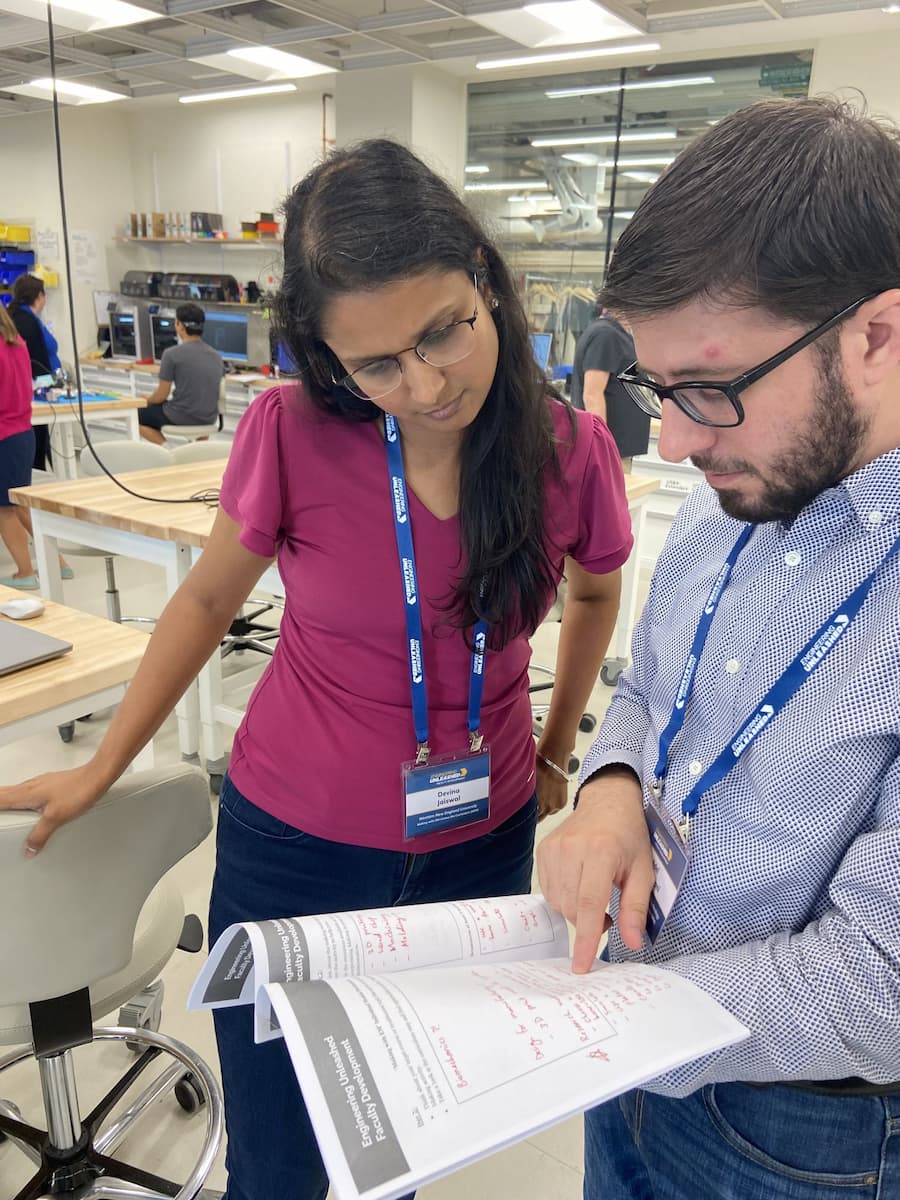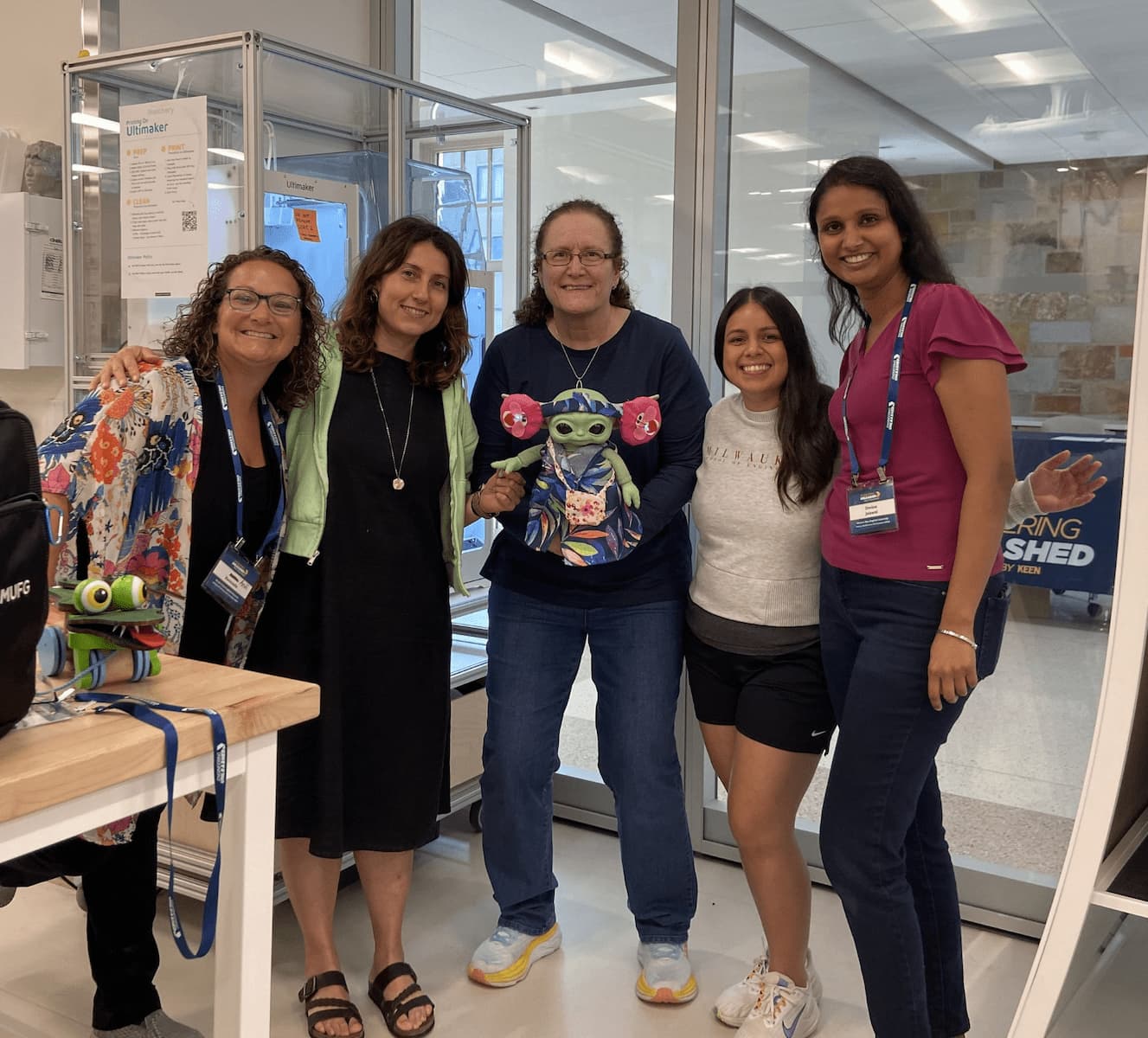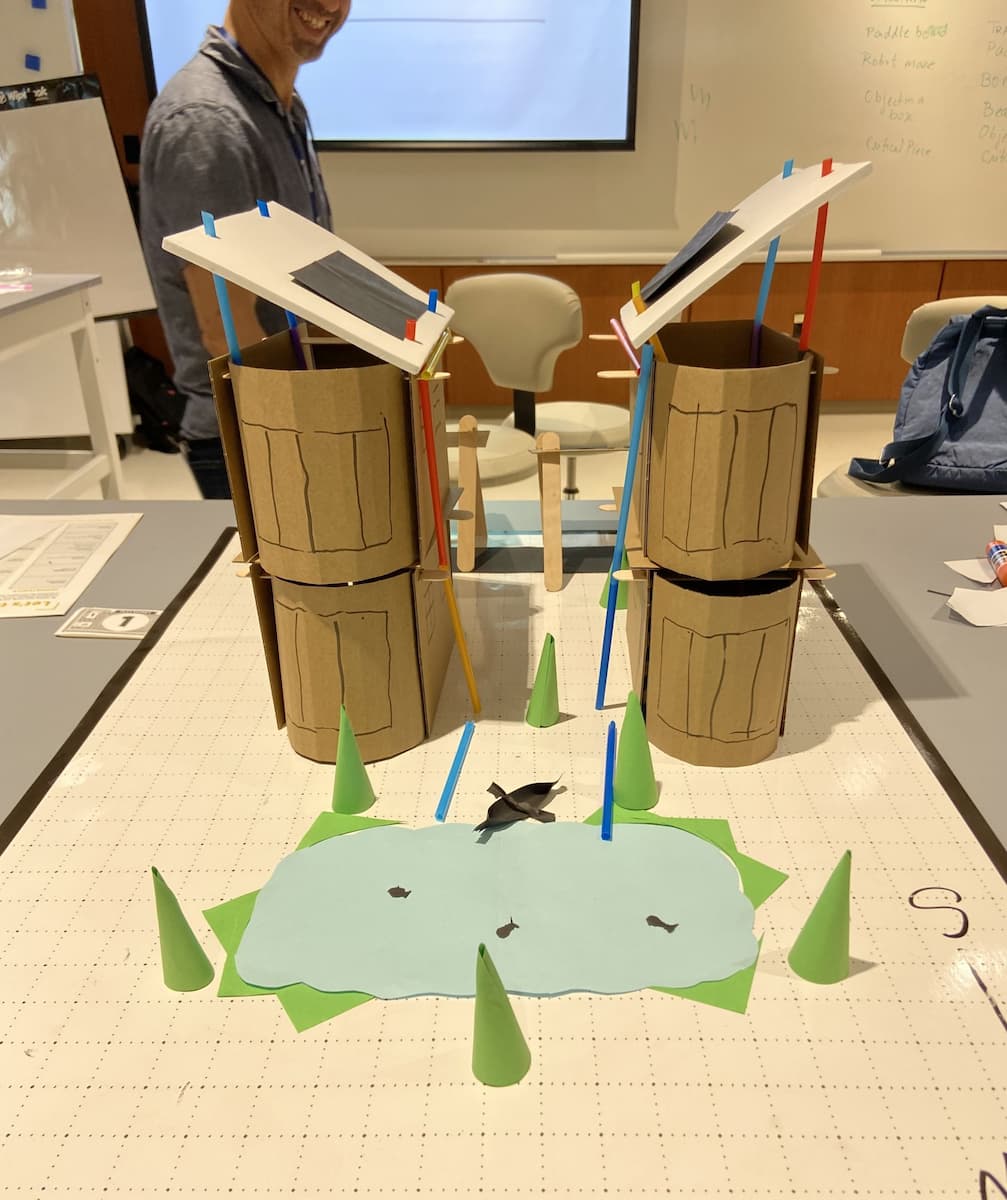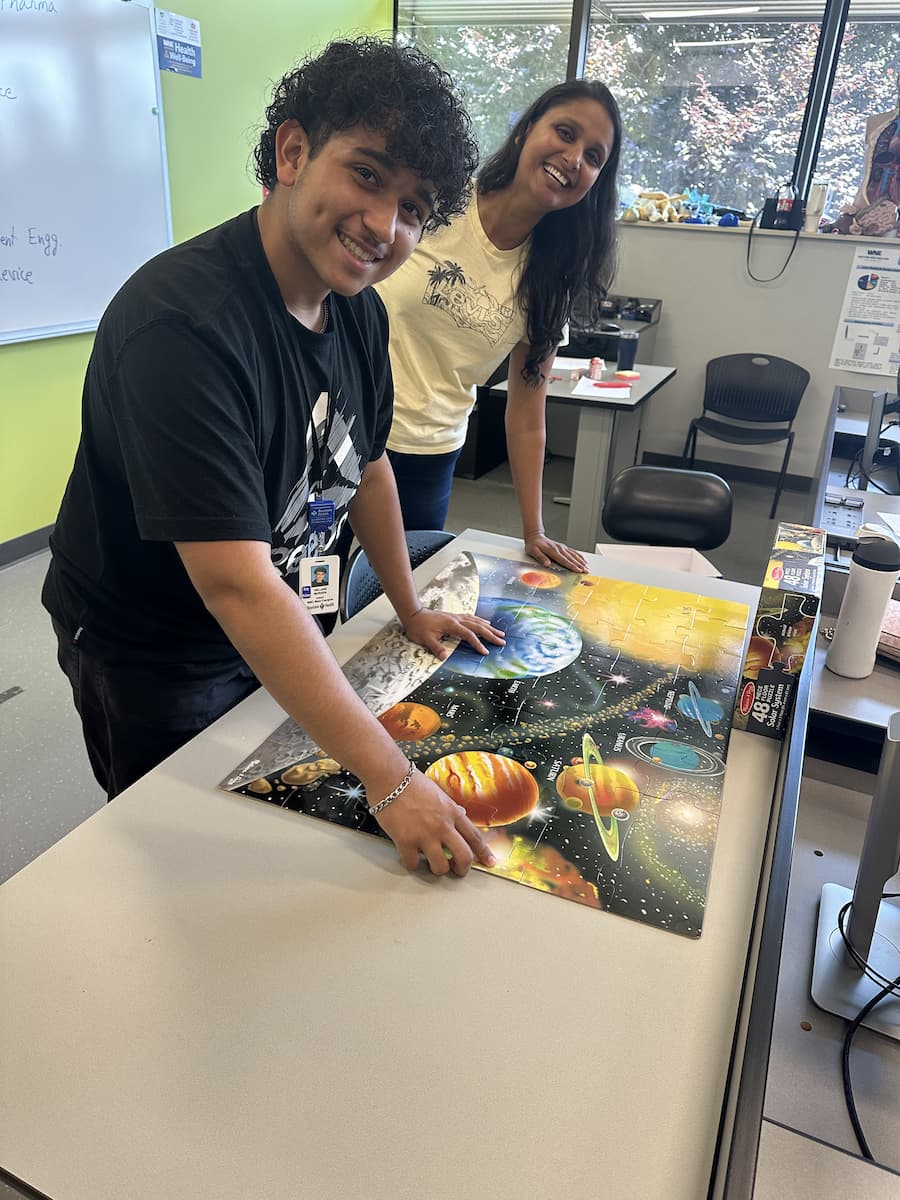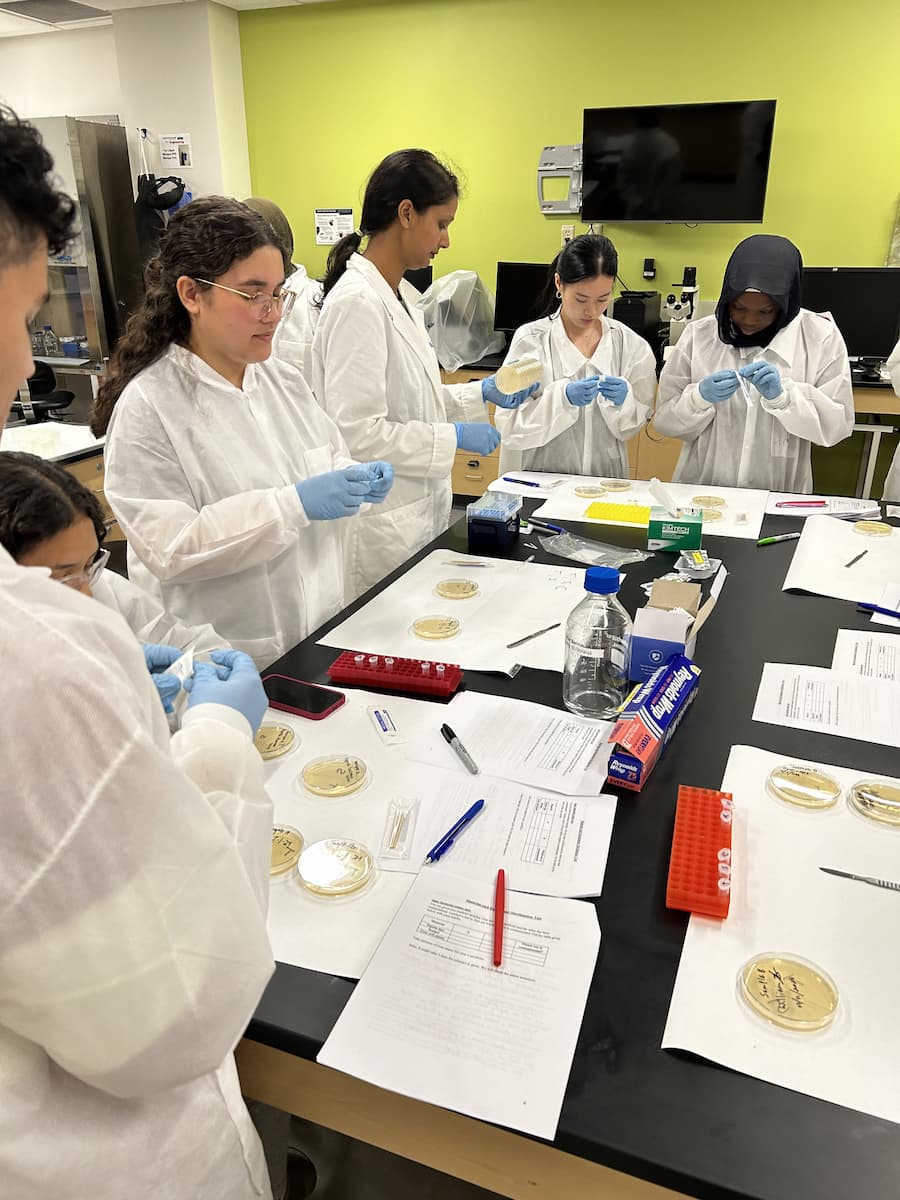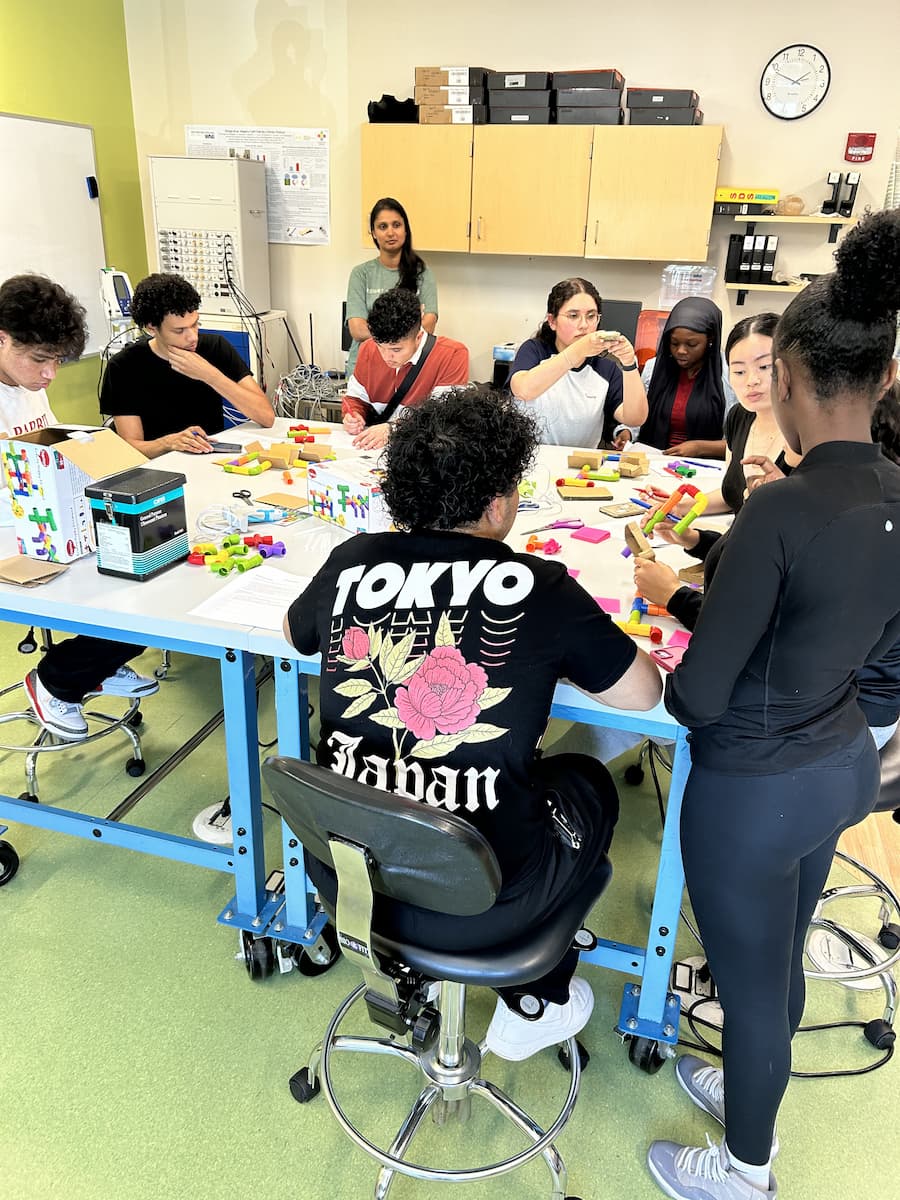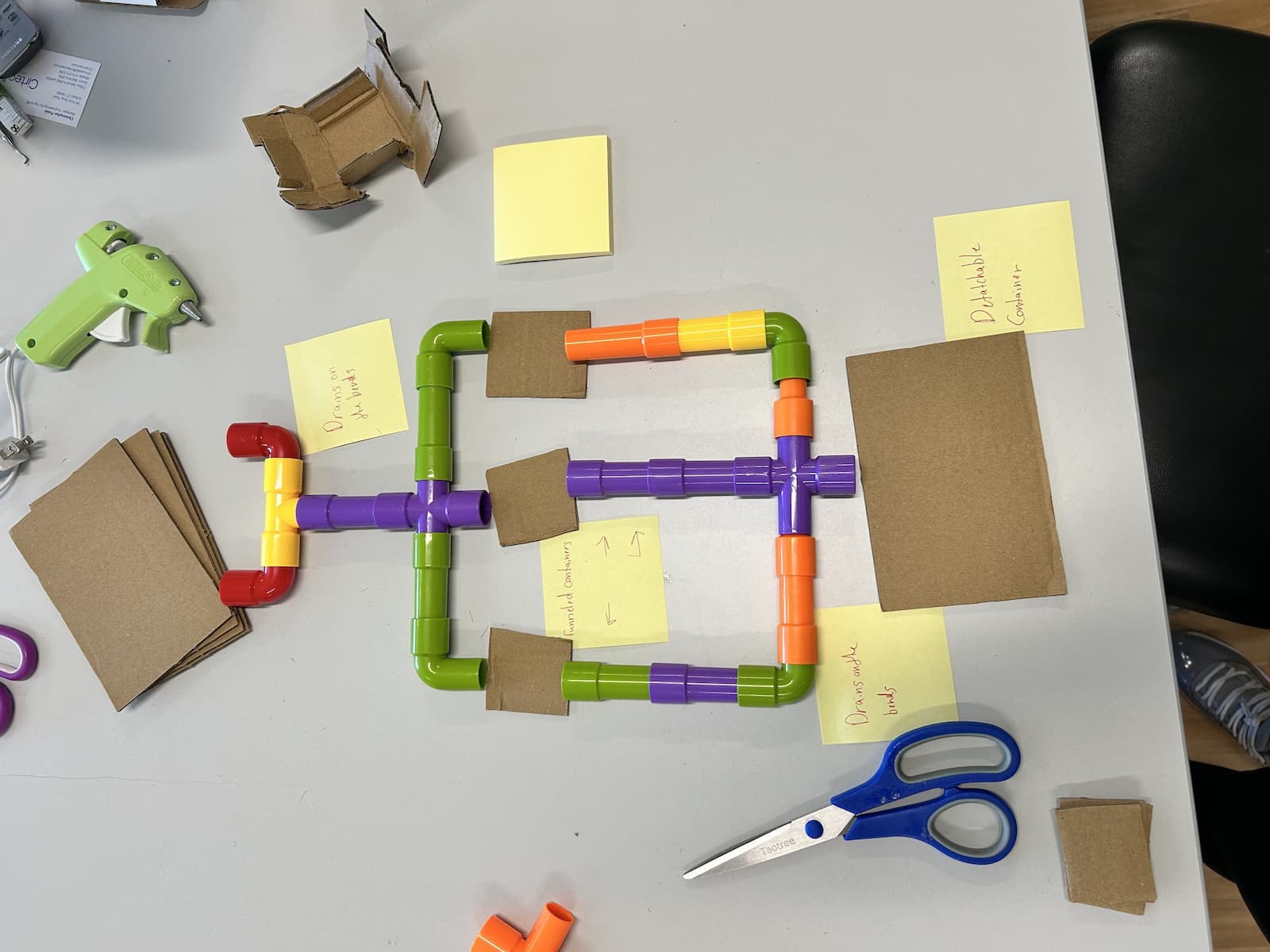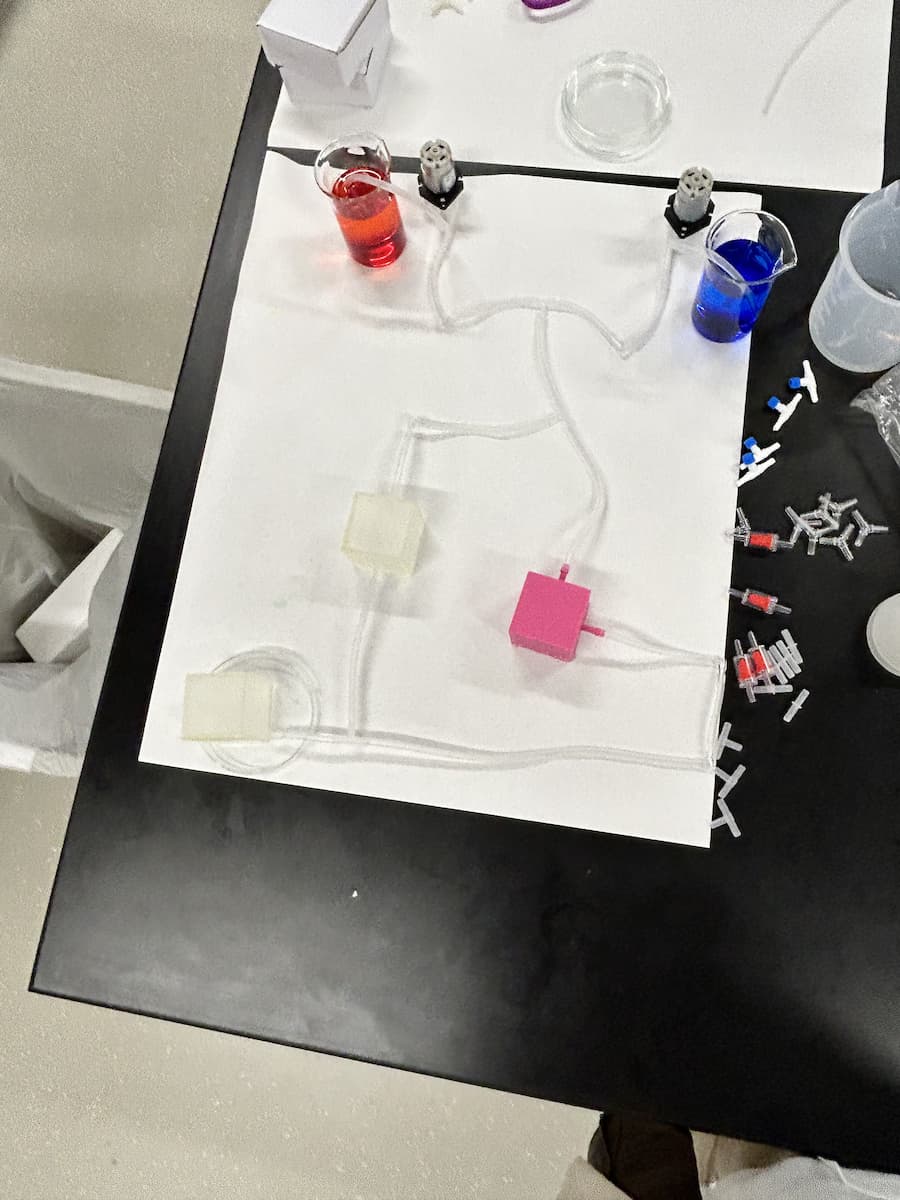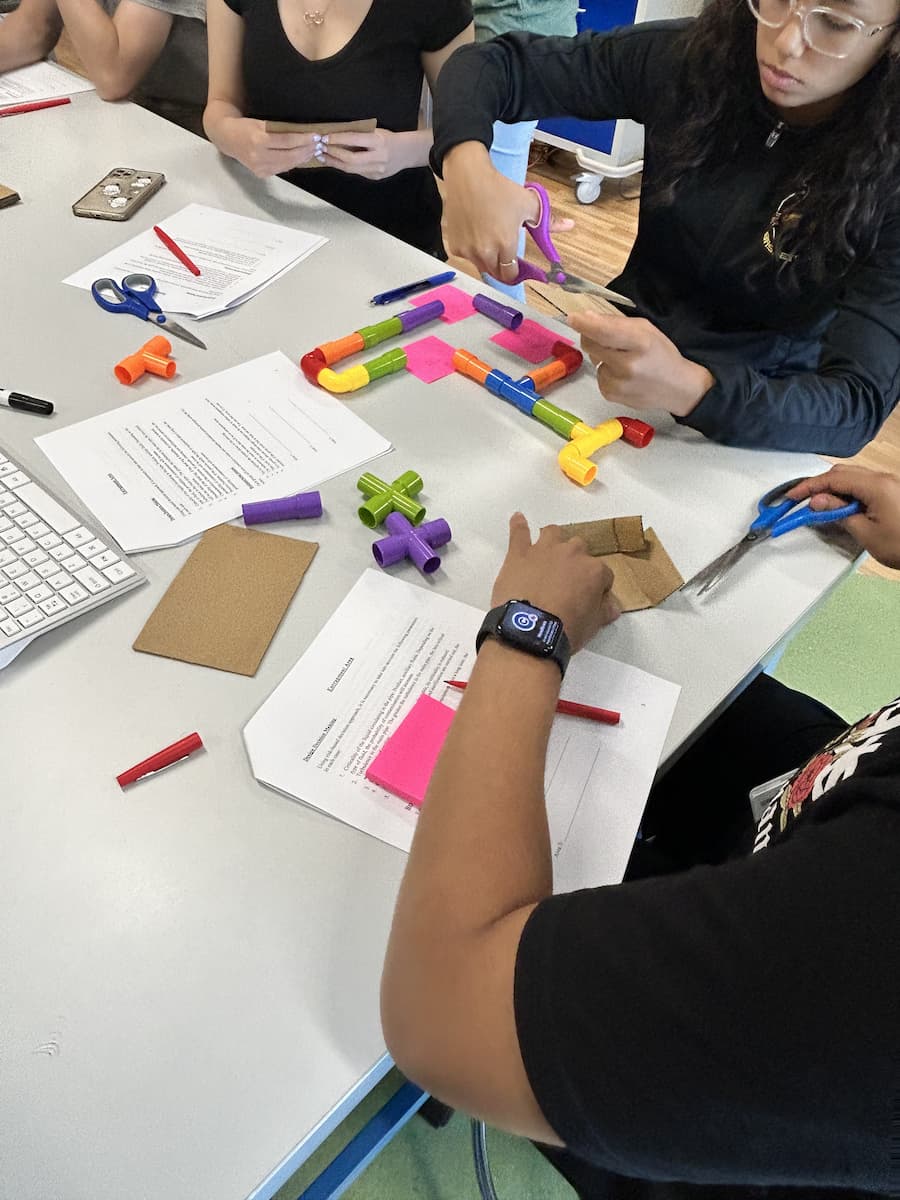Dr. Devina Jaiswal
2024 KEEN Rising Star
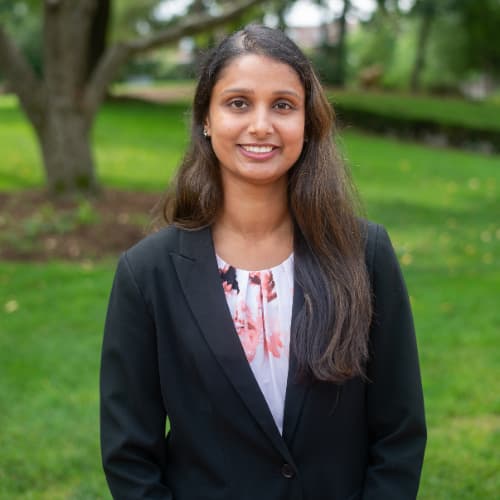
"When you hear the words 'rising star,' you think of someone who shines brightly and catapults through excellence to the top. Devina has the dazzle and energy of a bright star, and she always brings those around her along for the ride on her blazing trail! She fills our campus and the EM community with high impact activities and new ideas that inspire everyone around her.
"I am lucky to be in her orbit and look forward to seeing what adventures she takes us on next!"
-Dr. Andrea Kwaczala, Associate Professor of Biomedical Engineering, Western New England University
Dr. Devina Jaiswal, Associate Professor of Biomedical Engineering, Western New England University, is a 2024 KEEN Rising Star. Learn more in her interview:
How did you develop your approach to teaching? How does entrepreneurial mindset (EM) align with it?
My teaching style has evolved from passive and active to interactive learning over the last six years.
When I started teaching, I used traditional, passive style lectures. These failed in the classroom and disconnected me from students as they could sense my discomfort. In an effort to develop my unique teaching style, I reflected on my failures and came up with three main values:
- Understanding the students and their needs.
- Less is more for deep learning.
- Learning from failure.
These crafted my current teaching philosophy, which is to create a constructive and interactive environment for students that enhances their learning.
In addition to self-reflection, multiple workshops and conferences gave me an opportunity to learn from my colleagues. It is very important for me to understand how the students engage in the classroom, and I constantly convey to them that their education is important to me.
I am curious about learning new teaching strategies that can help my students in making valuable connections between the content and real-world problems.
Talk about your teaching methods. What works? How have your methods changed over time? What have you discovered?
From the Engineering Unleashed Faculty Development Makerspace workshop:
Most of my courses are based on student-centered and project-based learning approaches, as I always felt students learn and retain more when they conduct collaborative self-driven research and come up with innovative solutions. These sessions generally start with an open-ended problem with a global or societal aspect.
It is interesting to see how students with diverse learning styles adapt to this environment and progress as a group while pacing their individual learning. These sessions can be sometimes frustrating for the students as they don’t have much information to start with, but their inherent curious nature helps them to dive deeper into the subject and find answers. It is a success for me when I start hearing, "Aha!" "OMG, I got this," or "This makes so much sense" across the classroom as students interactively learn and make progress.
Makerspace has also become an integral part of my teaching method where students can give shape to their ideas and explore multiple pathways without feeling restricted. This is such a powerful teaching tool that is also affordable, and students connect with it immediately. It’s a perfect place for students to be constructive and interactive and collaboratively create tangible products that can be a great source of learning from failures.
In addition, I use Problem Solving Studio, games, and theatre techniques such as storytelling, story board, and video-making in my classroom. All of these have resulted in long term student learning.
For example, I had been using lectures and direct problem solving in one of my courses. Over a period of two years, I saw frustration among my students; their struggle was genuine. I then took an Engineering Unleashed Faculty Development (EUFD) National Workshop on Problem Solving Studio and used the technique to teach a troublesome topic. To my surprise, students connected with the material and were able to resolve the open-ended problem with the help of discussions and interaction with their peers and me. The collaborative nature of the method produced great results, and this method is now a regular in my classroom.
What’s one of your favorite projects you’ve had students do?
I love teaching sophomores and introducing them to the world of Biomedical Engineering. A section of the Foundations of Biomedical Engineering course includes teaching anatomy. The topic can be very boring if taught as a lecture class.
"I collaborated with a professor in theatre and changed the topics into interactive storytelling subjects."
In this project, students are divided into groups and each group is assigned a topic from human anatomy. The groups have creative liberty to produce a video and record a sketch, narrate a story, write a poem, or create a game show to teach the given topic to their peers. This is a very popular session among students as it allows them to explore the topic, develop new skills, and create value for their peers.
This work was presented at the Frontier in Education conference and published as a conference proceeding.
What brings you joy in your work - or what are you most passionate about?
Every news item related to students achieving an award, getting an internship and/or job gives me a sense of achievement, as this represents that the work we are doing in the classroom is valuable. I feel a sense of pride when students share their interview experiences and state that the content learned in my course helped them to answer interview questions. It affirms that as a group, we can cater to market needs by training a well-rounded engineering workforce.
I am passionate about creating good interactive classroom content for my students and the educational community. Throughout my career, I have strived to disseminate my findings and techniques among my peers. I also feel strongly about developing a strong training program for early career faculty that can help them overcome the challenges that every faculty faces in their first few years as a professor. This will highly impact the classroom experience of our undergraduate students and improve their learning.
From a summer camp where EM was embedded into Quality Science:
Why do you think entrepreneurial mindset is important for engineers to have?
Entrepreneurial mindset is an important part of being an engineer. The field of engineering has always focused on the needs of the stakeholders and how innovation can benefit society. New fields of engineering are emerging because of the market need. As engineers we all are inherently entrepreneurial as we are constantly questioning the changes around us and trying to solve problems faced by the community. Without this mindset, we will lack application skills and engineering will be reduced to a set of rules in a textbook.
As an educator, I try to bring the inherent entrepreneurial nature of our students to the forefront. If EM tools are repeatedly implemented in the classroom, students’ mindset can be molded towards a sustainable entrepreneurial thinking that can benefit local, regional and global society.
How have you benefited from being part of a larger community focused on EM?
I joined the KEEN community in 2019 and ever since, it has been the most enriching experience. Every time I attend a workshop as a participant or a facilitator, I get an opportunity to connect with likeminded people who are passionate about EM and bringing EM to undergraduate classrooms. The EM community at KEEN is extremely supportive and KEEN National Conference is structured to improve our skills as an educator.
Over the last six years, I have been privileged to have made great connections and friends within the KEEN community that come together to celebrate each other’s success.
How have you worked with colleagues on your campus to impact students?
At WNEU, faculty members in the college of engineering are actively engaged in initiatives that have a high impact on our students. As I have already mentioned, I am passionate about developing teaching training tools for early career faculty. I started an EM focused mini workshop for new faculty members at WNEU in 2022. The goal of this workshop was to support the new faculty members and make EM part of the teaching culture. In order to expand EM beyond engineering, I included faculty members from the college of Arts and Sciences. The workshop introduced the faculty members to the 3Cs, active and collaborative learning tools, and problem-based learning, and helped new faculty members start thinking about innovative teaching strategies. The inclusion of faculty members from Arts and Sciences helped us see the interdisciplinary connections between engineering and humanities.
I also recognized that EM is not just for engineers. A biology or a philosophy student can benefit from being curious, making connections, and creating value for stakeholders. This was showcased by the modules developed during the workshop and cards published on the Engineering Unleashed website. I remember the first time an Arts and Science faculty member opened the engineering unleashed website; they emailed me to withdraw their name from the workshop as they felt they would not gain anything from an engineering workshop. Upon my request, the faculty member attended the first day and realized that my conviction about applicability of EM in Arts and Sciences was valid. The professor was so excited about the tools they gained during the workshop that they implemented the work as soon as the semester started. It was the most fulfilling experience for me that I was able to take EM beyond the college of engineering.
What would you tell a faculty member who is getting started implementing EM?
EM is a tool that elevates the way engineering students’ minds work. Its worth is seen when a student’s engagement with the content improves, and students can see the value of the course in connection with the real-world problems.
"Our students value societal issues. When they are given an opportunity to make that connection, they rise to the occasion and find an innovative solution."
Creating new classroom modules or making major changes to the courses can look daunting - but start small. Try to use Engineering Unleashed cards to get inspiration or adapt an activity for your course. There is no need to reinvent the wheel as there is an already existing repository of open-source material at your disposal. Start with EM micromoments to create opportunities for yourself and your students.
What advice would you give students about EM and their careers?
Entrepreneurial mindset can transform the way you think and apply your knowledge. It is important for you to always consider who are the stakeholders and identify their needs. As an aspiring engineer, it is imperative for you to develop skills of making connections between multiple aspects of knowledge gained from different courses and find an innovative solution to a high impact problem. An entrepreneurial mindset will always challenge you, make you question the obvious and lead you to a path of creativity. As you join the workforce, you will see that EM will always help you grow in your career as an engineer.
What are you hoping to do with your Rising Star funding?
The Rising Star funding will help me fund my passion about training and mentoring our faculty members. I plan to develop and implement a series of mini workshops that will be based on innovative topics aligned with EM.
My failure as a faculty member in my first year helped me to reflect on and learn from my shortcomings. I realized that as a Ph.D. student, I was never trained in how to teach undergraduate students. I had some experience with graduate courses, but teaching undergraduate students needed a different skillset. As a member of the educational community, I want to help fill the gap by providing a platform to our new faculty members and early career junior faculty to learn and understand the needs of the students.
More About Devina
"Once exposed to Engineering Unleashed, Dr. Devina Jaiswal immediately developed a deep passion for the entrepreneurial mindset. Devina inspired me personally and many others with entrepreneurial initiatives such as our internal ICE workshops and the Making With an Entrepreneurial Mindset workshop. Her tireless work and leadership made these activities truly amazing." -Dr. Robert Gettens, Associate Professor and Chair of Biomedical Engineering, Co-Director of the Engineering Fundamentals Program, Western New England University
"We couldn’t be more thrilled for Devina; this is quite an achievement, and so well-deserved. After joining our faculty several years ago, Dr. Jaiswal quickly became a champion and thought leader within the EM/KEEN community. Her work has impacted students and faculty alike, both at WNE and across the country. We can’t wait to see what she works on next!" -Dr. Michael Rust, Professor of Biomedical Engineering, Director of Experiential & Entrepreneurial Learning, Western New England University
Cards
- Card #3960: Applying Entrepreneurial Mindset to Teach Sustainability Modules
- Card #3109: Tackling Enzyme Kinetics in a Problem-Solving Studio
- Card #287: Introducing Biomedical Engineering with Low Fidelity Assistive Device Project
- Card #2510: Assistive Technologies for Individuals with Disabilities (AID): Using the Quantified Self to Develop Design Empathy
- Card #2483: A Step Towards Learning to Conduct Research in an Engineering Laboratory
- Card #377: Quit Smoking: An engineering physiology and biomedical perspective
EM-Related Content
- Jaiswal, Devina. "Pop-up Makerspace Module in Undergraduate Studies Inculcating Entrepreneurial Mindset." 2020 IEEE Frontiers in Education Conference (FIE). IEEE, 2020.
- Lukas, Allison, and Devina Jaiswal. "Impact of Entrepreneurial Mindset Module Connecting Societal Consideration, Medical Interventions and Engineering Physiology." 2021 ASEE Virtual Annual Conference Content Access. 2021.
- Jaiswal, Devina. "Resolving Troublesome Knowledge in Engineering Physiology using ICAP framework based Problem-Solving Studio." 2022 ASEE Annual Conference & Exposition. 2022.
- Jaiswal, D., Bucs, H.H., Jakielaszek, M., & Mikkelson, L. (2022). "Interdisciplinary Student-Centric Learning Approach for Undergraduate Engineering Students." 2022 IEEE Frontiers in Education Conference (FIE), 1-5.
- Kwaczala, Andrea, Jaiswal, Devina and Murray, Lisa. “Cultivating a Sustainable Mindset in Undergraduate Engineering through the Engineering-for-One-Planet Framework.” 2024 ASEE Annual Conference and Exposition. 2024.
